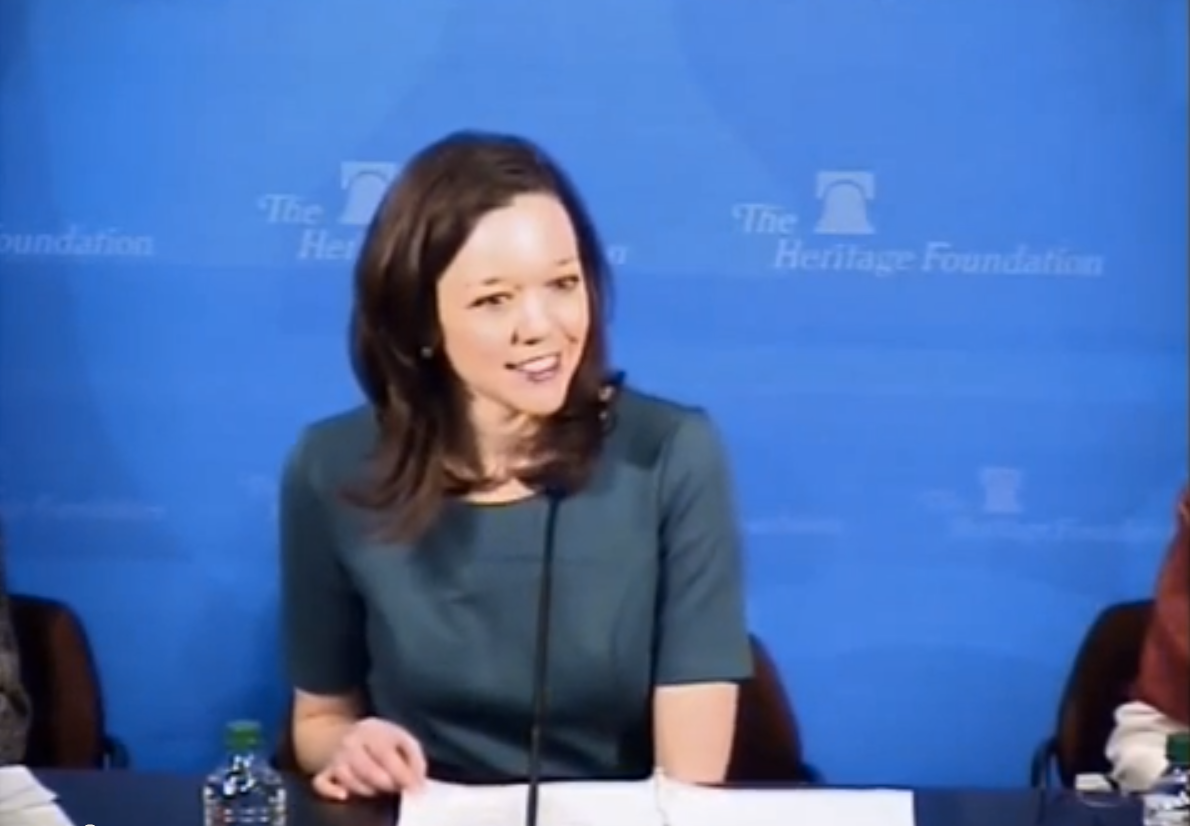Yesterday, the Heritage Foundation held a panel in honor of Women’s History Month called “Evaluating Feminism, Its Failures, and Its Future.” At the front of the room, a slate of female conservative journalists and activists evaluated feminism, and concluded that it has not been so good for women. Not good at all. “Millions of women have taken feminist advice,” conservative columnist Mona Charen lamented. “And it’s led to unparalleled misery.”
But feminism had also made men miserable, the panelists were quick to note. Men are now less likely to graduate from high school than women (though both boys and girls are graduating at significantly higher rates than they were just five years ago). Women outnumber men on college campuses, Network for Enlightened Women president Karin Agness noted (though women have to reach a higher education level to match men’s earnings once they enter the workforce—female high school grads make about as much as male dropouts, for example). Male wages are falling, Charen said (but not so far that men are actually making less than women). “Women and girls are not failing to thrive,” Charen concluded. “We have a problem with men and boys. Men’s participation rates in the workforce are declining alarmingly.” They’re even “seeing declining percentages of supervisory and administrative posts.”
It’s easy to pick out a few data points that point to female supremacy at the expense of male power. At this woman-themed Heritage Foundation panel, for example, men constituted an underrepresented demographic—young male interns were confined to the audience while successful women held court at the front of the room. During the Q-and-A period, one Heritage intern asked the panelists how to deal with the fact that debates about women’s issues on his campus were dominated by female students. “How can we talk to women without being discounted right off the bat?” he asked. Whenever he tries, he’s told, “You’re not a woman, so obviously, your opinion doesn’t matter.” Agness advised him to “forward columns from female conservative columnists” to doubting women to nudge them toward the right.
What the women on the panel are describing as a decline in male power is, in many cases, true, but it’s not all feminism’s fault—we can shift some of the blame to drops in union membership and the decline of American manufacturing. But in some instances, taking power away from men is a part of the feminist agenda. Men will necessarily see “declining percentages” of supervisory roles at work as women climb the ladder. If we ever do reach gender parity in powerful roles in the workplace, 50-50 will represent a serious compromise of men’s representation at the upper rungs. You may have also noted that male representation in Congress has been falling slowly yet steadily since 1917, or that the power of men to rape their wives has declined markedly since the 1970s. These are positive developments for society, whether or not they compel women to report being “happier” than previous generations did. After all, men didn’t report to be very happy before feminism interfered. As The Federalist senior editor Mollie Hemingway noted, “Women used to report far higher happiness levels than men, but we’re on the same level now.” Hemingway calls that “a problem,” but I see it as something else: equality.
